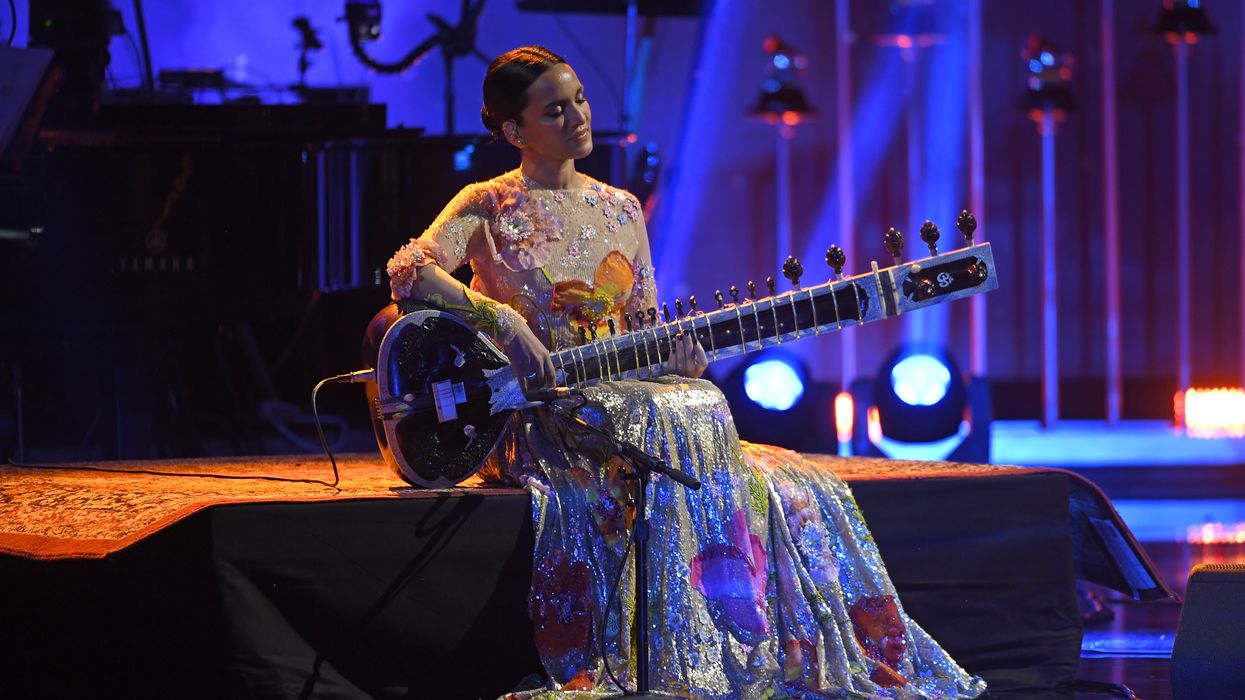Brighton Festival 2025 is set to bring an exciting array of collaborative classical performances that span centuries and generations, with a dynamic lineup of artists showcasing music from across the ages. The festival's classical programme, curated under the artistic direction of the Grammy-nominated sitarist and composer Anoushka Shankar, promises a journey through time with performances that bridge both the Baroque period and modern orchestral works.
Anoushka Shankar will also be gracing the stage herself, performing music by her father, the legendary Ravi Shankar, alongside the Britten Sinfonia and Indian classical musicians, in a rare live rendition of Passages, an album created by her father in collaboration with the minimalist composer Philip Glass.
Anoushka Shankar revives "Passages"
For the first time since the BBC Proms in 2017, Anoushka Shankar will perform Passages in full in a Brighton Festival exclusive on 9 May. Originally composed as a collaboration between her father Ravi Shankar and Philip Glass, the album combines the distinct Indian classical music of Shankar with the minimalist style of Glass. This performance promises to capture the essence of the collaboration, bringing together diverse musical traditions on one stage. The Britten Sinfonia will accompany Shankar, alongside a specially curated ensemble of Indian classical musicians, making this a highlight of the festival.
Rachel Portman’s new work premieres
Adding to the stellar classical offerings, the Royal Philharmonic Orchestra will premiere a new work by Rachel Portman, the Academy Award-winning composer of Emma and Chocolat. Her new concerto for violin, narrator, and orchestra, entitled Tipping Points, explores the crucial moments in the climate crisis. This nature-themed concert, conducted by Grammy Award-winner Ludovic Morlot, will take place on 22 May and features Sibelius’ Tapiola Op. 112, a hymn to the Finnish forests, and John Luther Adams’ monumental Vespers of the Blessed Earth with the Brighton Festival Chorus.
London Symphony Orchestra and Susanna Mälkki
On 17 May, the London Symphony Orchestra will be conducted by Susanna Mälkki, one of today’s most celebrated conductors. Joined by violinist Leila Josefowicz, the orchestra will present a powerful programme including Stravinsky’s Violin Concerto and Bartók’s Concerto for Orchestra. The concert will also feature A Short Piece for a Large Orchestra by pioneering mid-20th century Black-American composer Julia Perry, adding a contemporary note to the proceedings.
Baroque pioneer William Christie celebrates 80th birthday
In a special birthday celebration for renowned Baroque harpsichordist William Christie, the festival will welcome the celebrated founder of Les Arts Florissants to perform at Glyndebourne Opera House on 4 May. Christie, known for his pioneering work in rediscovering Baroque music, will be joined by young singers from his academy, Le Jardin des Voix, in a programme that brings forgotten French Baroque music to life.
Performances by Sheku and Braimah Kanneh-Mason
One of the UK’s brightest classical stars, cellist Sheku Kanneh-Mason, will take the stage on 18 May with the Castalian String Quartet. Together, they will perform a rich programme that blends Baroque and Indian classical styles in a contemporary response to Bach’s Solo Cello Suites by British composer Natalie Klouda. Also featured will be Schubert’s final chamber work, Quintet in C, and Thomas Adés’ Arcadiana.
Braimah Kanneh-Mason will also be performing during the festival, playing alongside the Brighton & East Sussex Youth Orchestra on 12 May. This collaboration between a rising star and young musicians promises to be an inspiring event, featuring accessible works such as Tchaikovsky’s The Nutcracker Suite and Mussorgsky’s Night on a Bare Mountain.
Additional highlights of the classical programme
The festival’s classical offerings will also include The Sixteen, an elite vocal ensemble led by Harry Christophers, performing on 10 May. Their programme spans music from the 12th century mystic Hildegard of Bingen to contemporary British works. A song recital by renowned mezzo-soprano Dame Sarah Connolly on 19 May will feature pieces by Schumann, Wolf, Debussy, and Barber.
Brighton Festival will also feature a series of lunchtime concerts showcasing emerging young talent. Among these is medieval ensemble Rune, who will perform a programme inspired by Giovanni Boccaccio’s Decameron, and French ensemble Quatuor Van Kuijk, celebrating Ravel’s 150th birthday with music from their latest album.
A new dawn for classical music
With a focus on collaboration, diversity, and the future, Brighton Festival 2025’s classical programme stands out as a celebration of music’s ability to transcend time and bring people together. Anoushka Shankar’s curation weaves together the music of her father, modern orchestral masterpieces, and timeless Baroque compositions, all while highlighting the talents of today’s emerging artists and seasoned professionals alike.
As Shankar herself puts it, “This year’s festival explores art’s power to challenge and uplift, and there are so many unique perspectives and collaborations in the classical programme that will do exactly that.”
Brighton Festival 2025 runs from 3-26 May. Full listings for performances and events are available at brightonfestival.org.





